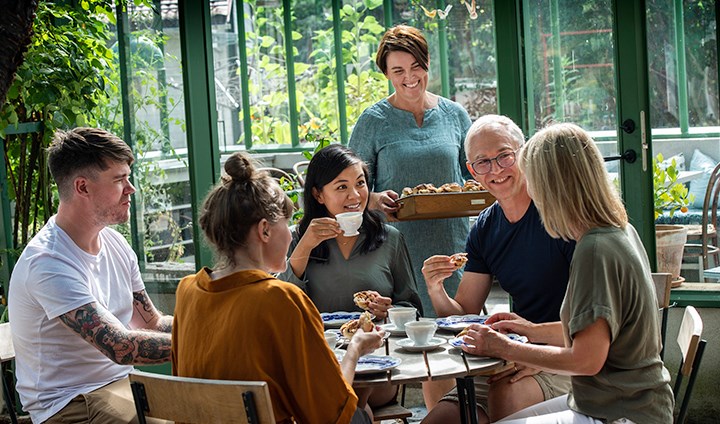Social guide to the Swedish way

After moving to Sweden, you may find it challenging to navigate the social codes here. Therefore, we’d like to share with you some traits that could be called ‘typically Swedish’ – which may make your time in Sweden a bit easier.
Punctuality – be on time
Be on time – both at work and socially. For example, a dinner invitation at 18:00 means that the host expects that you are there no later than 18:05.
Shoes – take them off when entering someone’s home
Swedes are always taking off their shoes when they enter a private residence. Or when dropping off at the childcare centre. This may explain why many Swedes like to wear colourful socks. Maybe it’s the Nordic winter but wearing outdoor shoes inside just isn’t a good idea. Remember, leaving your shoes at the door applies year-round.
No smoking – except in designated areas
Smoking in Sweden is an uncommon occurrence. According to Swedish Public Health Agency, only six per cent of the population reported daily tobacco smoking in a 2021 survey. So, in most workplaces and public places like restaurants, pubs, banks, and train stations, you may only smoke in designated areas.
“Fika” – coffee break
In Sweden, we love fika. We enjoy taking our coffee breaks and eating something sweet together with colleagues, friends, family or even alone. And remember, fika is an everyday experience – suitable at any time of the day.
The art of queuing – strict etiquette
We have a strict queuing etiquette in Sweden. Many institutions, shops, pharmacies, and the like use a “queuing tickets” system. When your number comes up on display, it’s your turn. If no queuing tickets are available, you’re expected to stand in line and wait your turn. And as for queue-jumping, there’s almost no good excuse – you’ll just have to wait your turn.
Informality and equality – everywhere
Sweden is known for being one of the most equal countries in the world. Equality between women and men is considered very important in society. And we like informality. For example, students and teachers tend to treat each other rather informally at universities. The informal attitude also applies to other social contacts in society and community and is, of course, related to our view on equality and democracy. We often address each other with “du” (you, in the informal sense) without using Sir, Mr, Mrs or Ms.
